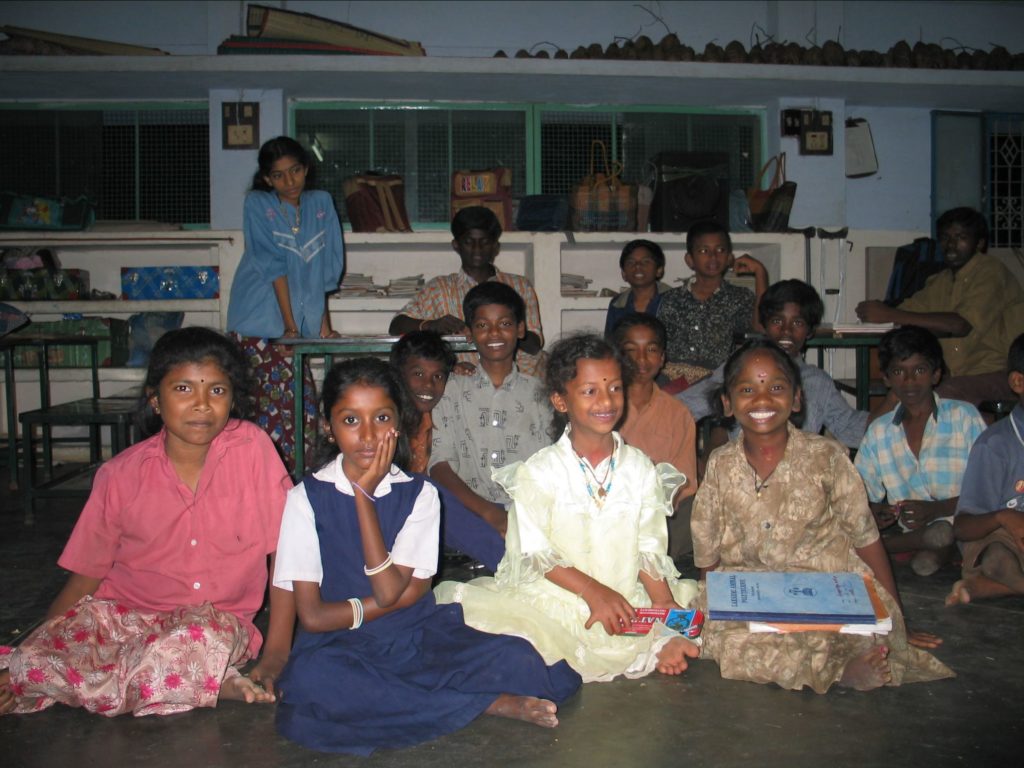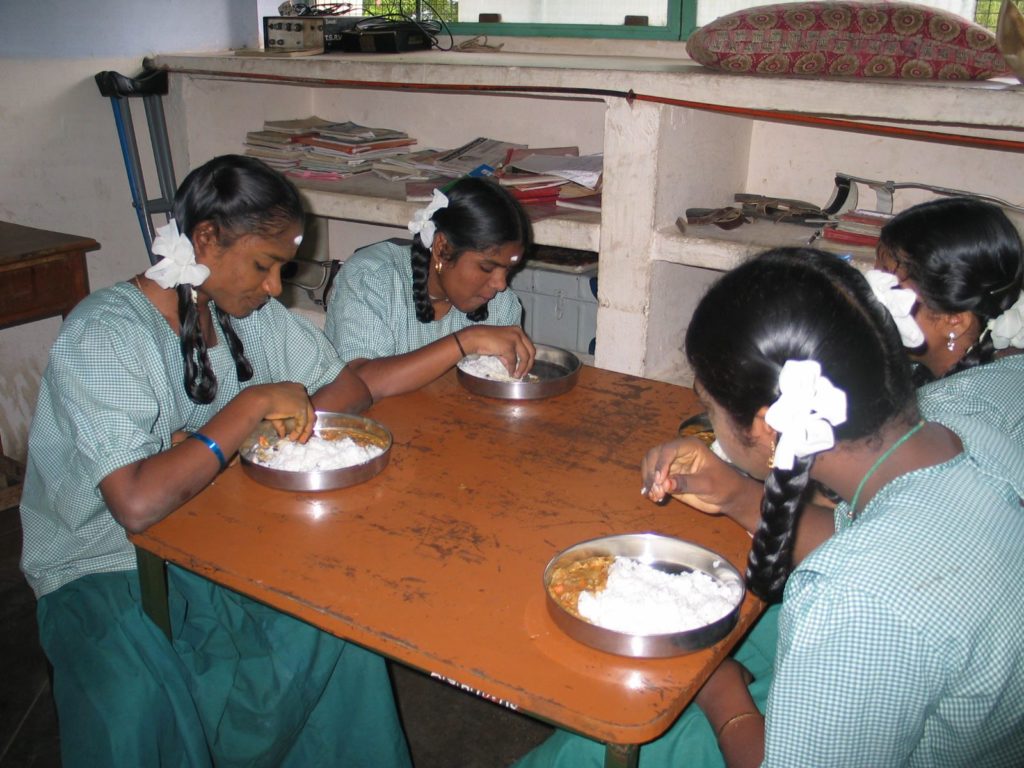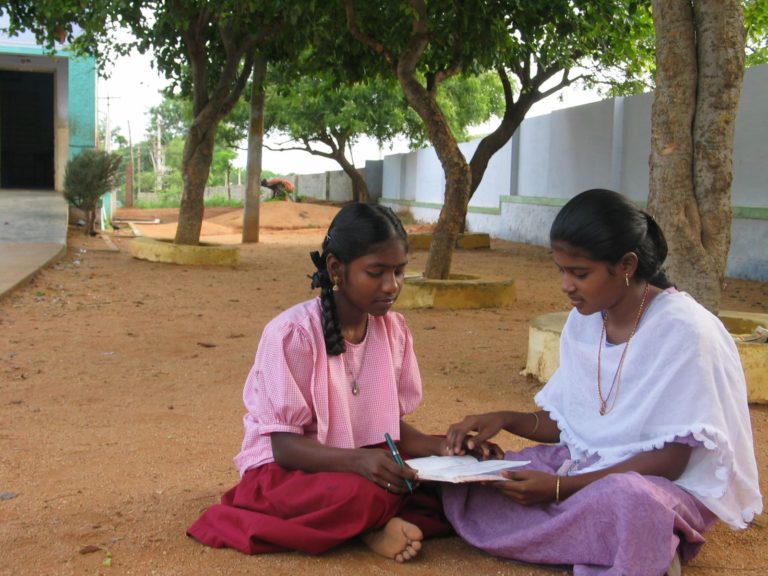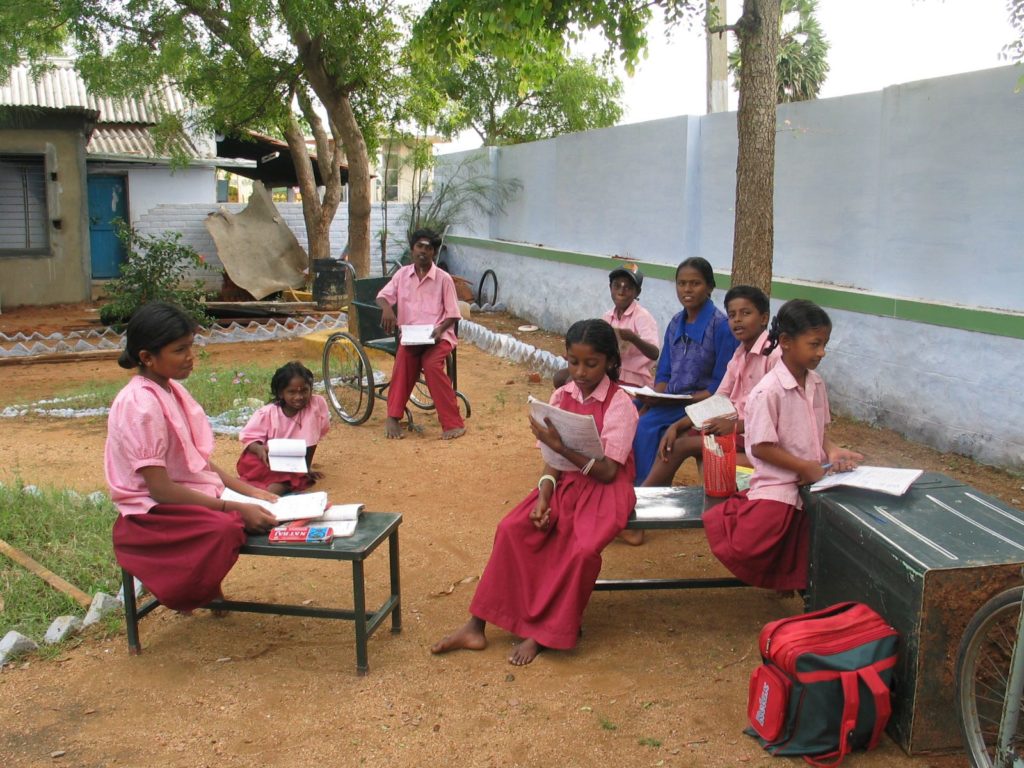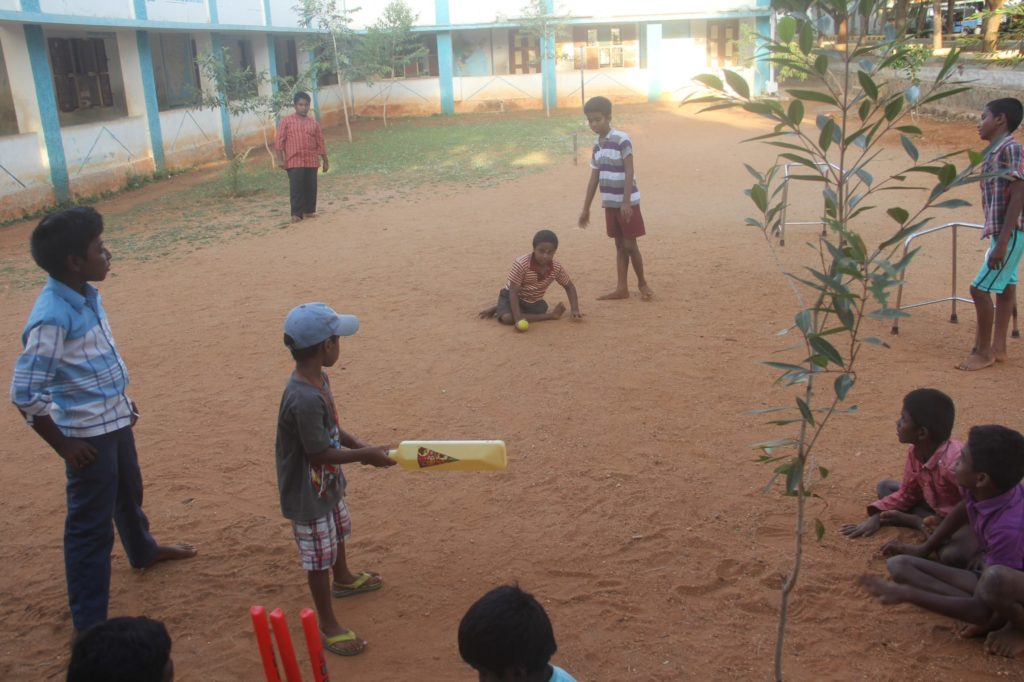
Those who stay at Amar Seva Sangam campus (Home) and are provided with accommodation, food, clothing, rehabilitation, and education until they complete grade 12 or otherwise move on to higher studies or vocational training. Almost everyone in this category have predominant physical disabilities along with developmental issues. Generally, children come under home care, who are either very severely affected or their families can not offer adequate care and support in their homes, due to poverty or broken families or these children are orphaned.

